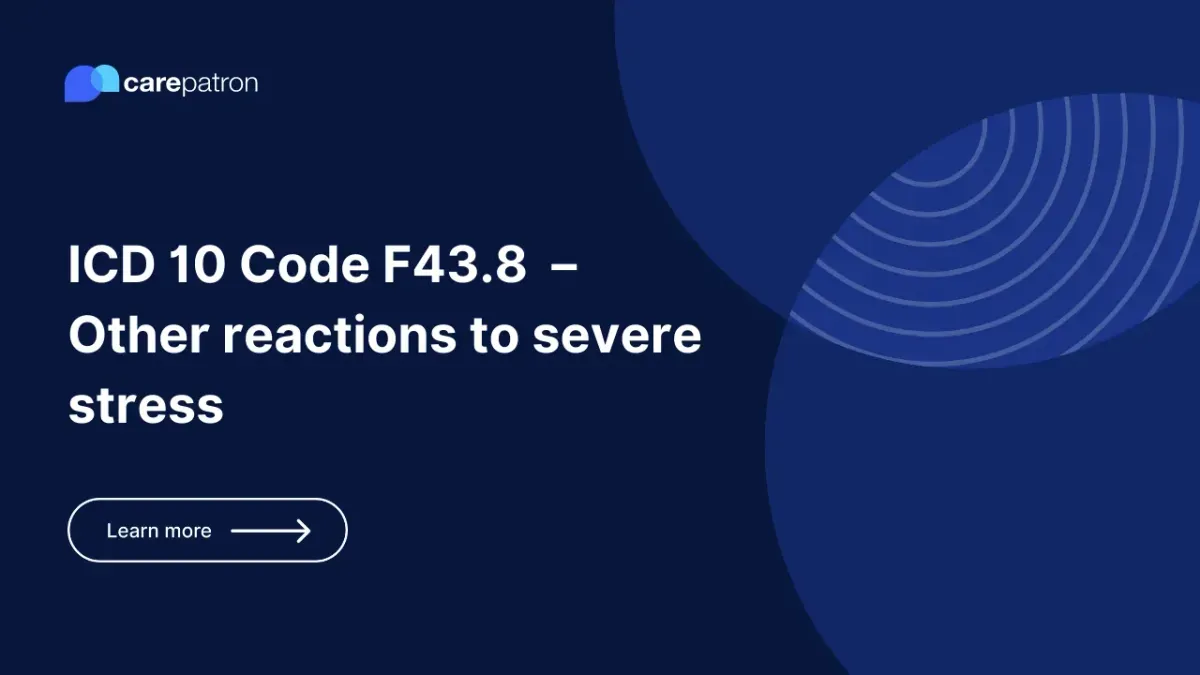
F43.8 – Other reactions to severe stress
The ICD-10-CM code F43.8 designates patients with Other reactions to severe stress. Learn what this code entails, its clinical information, and whether it's billable.
Use Code
EHR and practice management software
Get started for free
*No credit card required
Free
$0/usd
Unlimited clients
Telehealth
1GB of storage
Client portal text
Automated billing and online payments
